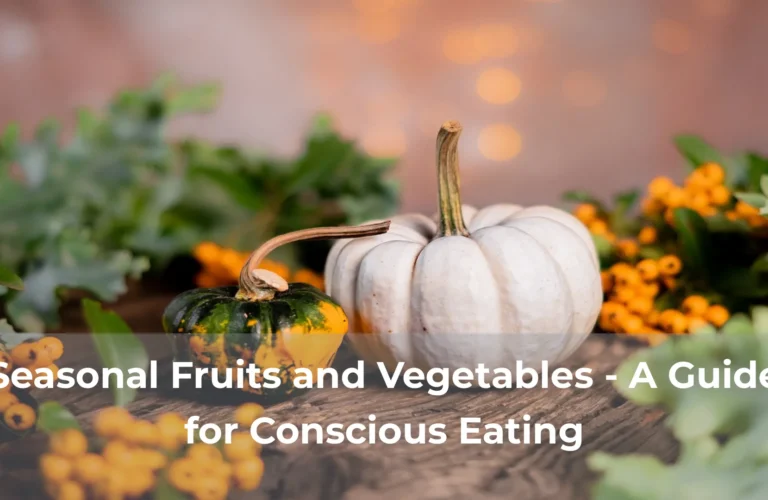Seasonal Fruits and Vegetables – A Guide for Conscious Eating
Seasonal Fruits and Vegetables – A Guide for Conscious Eating
Discover the flavors of each season with our comprehensive guide to seasonal fruits and vegetables. In a world where we can have access to any food throughout the year, it’s important to remember the benefits of eating locally and seasonally. By choosing fruits and vegetables that are in season, not only are we supporting local farmers and reducing our carbon footprint, but we are also ensuring the freshest and most delicious produce on our plates. From the crisp apples of fall to the juicy berries of summer, our guide will help you navigate the bountiful world of seasonal eating and make more mindful choices for your health and the environment.
The Benefits of Eating Seasonal Fruits and Vegetables
Eating seasonal fruits and vegetables not only supports local agriculture, but it also comes with numerous health benefits. Seasonal produce is harvested at its peak, which means it is fresher, tastier, and more nutrient-dense. Since these fruits and vegetables are grown in their natural environment, they require fewer artificial interventions to grow. This translates into lower pesticide exposure and a reduced carbon footprint. Additionally, seasonal produce is often more affordable and easily accessible, making it an excellent option for those on a budget or looking to eat sustainably. By incorporating seasonal fruits and vegetables into your diet, you can enjoy a wide variety of flavors while reaping the nutritional rewards.
Understanding the Environmental Impact of Eating Out-of-Season Produce
As consumers, we often take for granted the convenience of having our favorite fruits and vegetables available year-round. However, the desire for out-of-season produce comes at a cost to the environment. The transportation and storage of these items require significant energy and resources, contributing to carbon emissions and other environmental impacts. In this article, we delve into the environmental consequences of eating out-of-season produce and explore sustainable alternatives.
One of the main contributors to the environmental impact of out-of-season produce is the extensive transportation involved. To ensure that consumers have access to a wide selection of fruits and vegetables regardless of the time of year, these items are often shipped from far-off locations, sometimes even across continents. This requires transportation by air, road, or sea, all of which emit greenhouse gases that contribute to climate change. In addition, the storage facilities needed to keep produce fresh during transit consume a significant amount of energy.
Another factor to consider is the amount of resources required to grow out-of-season produce. To meet the demand for off-season fruits and vegetables, agricultural practices often rely on artificial heating, lighting, and irrigation systems. These energy-intensive methods not only lead to higher costs for farmers but also put additional strain on natural resources such as water and fossil fuels. Furthermore, the use of chemical fertilizers and pesticides in these intensive farming systems can have detrimental effects on local ecosystems and human health.




